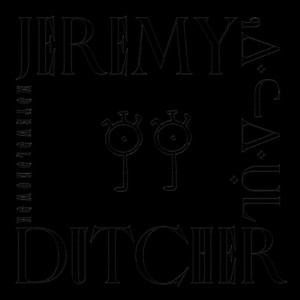Jeremy Dutcher
Motewolonuwok

About this item
Five years after winning the Polaris Music Prize with his ground-breaking debut, Jeremy Dutcher has returned with a radiant exploration of contemporary Indigeneity and his place within it. With songs performed in his people’s Wolasotqey language but also, for the first time, in English, Motewolonuwok extends beyond anything the musician has made before, encompassing traditional song, starlit ballads and staggering orchestrations. “With my first record, the concept was so clear, so complete,” Dutcher says. This time, “I wanted [to make an LP] that wasn’t always so sure of itself.”
Wolastoqiyik Lintuwakonawa, released in 2018, vaulted Dutcher into the upper echelons of Canadian performance, from the Polaris and Juno Award stages to the judges’ panel on Canada’s Drag Race. The follow-up is more intimate, more personal, inspired by his growing understanding of the “middle space” of being Two Spirit—Indigenous and queer. In the Wolasotqey language, Two Spirit people are called “motewolonuwok”—“the people of great spiritual power”—an identity filled with strength and knowledge, which is not dogged by shame.
Dutcher came out as gay when he was 12—but even that idea, of “coming out,” was imposed upon him by a colonialist framework. Motewolonuwok is a stepping-through and singing-into his full identity. On “’tahcuwi Anelsultipon,” Dutcher stands almost alone on a stage, singing about devotion. “The Land That Held Them,” his tribute to “the ones taken too soon,” shudders with a force that recalls Nina Simone and Anohni. Elsewhere, Dutcher reached for the largest possible frame: a full orchestra, with arrangements by Owen Pallett, and, on tracks like “Sakom,” a 12-voice choir made up of Dutcher’s queer and allied kin, including friends from music school and members of the Queer Songbook Orchestra.
Making music is like learning a language, Dutcher says. It’s “an unfurling”—a constant exploration of what you want to say and how you can express it. Motewolonuwok features Wolastoqey traditionals, poetry from by the Cherokee poet Qwo-li Driskill, but also Dutcher’s first songs written in English. This is an acknowledgment of his father’s tongue, and also a way of singing “directly to the newcomer [settler],” in their own language, to tell his community’s stories of grief, resilience and emergence. “I needed to contextualize my own story,” he explains, and Motewolonuwok moves like a collective wish and a corrective medicine.
TRACK LISTING
1. Skicinuwihkuk
2. Pomawsuwinuwok Wonakiyawolotuwok
3. Take My Hand
4. Wolasweltomultine
5. Tahcuwi Anelsultipon
6. Sakom
7. Ancestors Too Young
8. The Land That Held Them
9. There I Wander
10. Together We Emerge
11. Rise In Beauty
